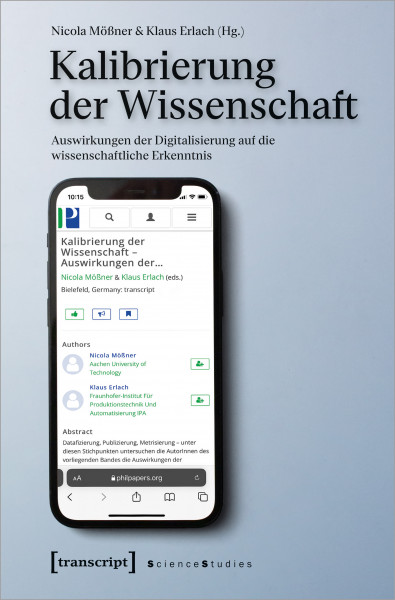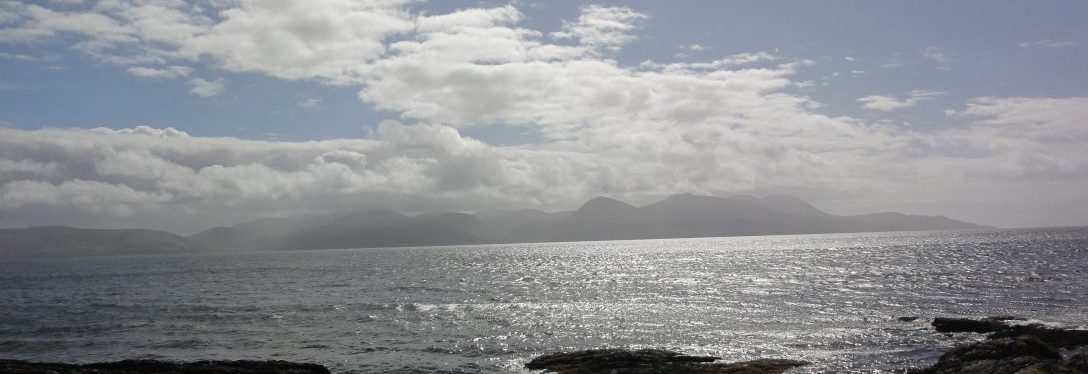Interview (in German) on practices of electronic publishing, open access and science tracking. Accessible online at: RaDiHum20
Category: Uncategorized
New open access publication “Sucht oder Autonomie? – Neue ExpertInnen im Netz”
Abstract: During the Covid-19 pandemic, a significant number of people has seemingly been lured in believing conspiracy theories. Many deliberately disregarded expert advices by virologists and physicians to reduce new infections. This turning away from traditional expert authorities exemplifies the »crisis of expertise« that has been discussed in the philosophy of science for some time, namely that many people seem to have lost their trust in the established authority of expert knowledge and are looking for epistemic alternatives, especially on the Internet and in particular on social media. In this article, this digital cultural trend will be analysed.
Will people actually becoming more epistemically autonomous as a result of this new tend? Attention is drawn to the epistemic and moral vulnerability of people who opt for new media as epistemic alternatives instead of relying on traditional expert opinion. It will be shown that some important presuppositions about the Internet and, especially, social media tools as alternative ways to gathering information and find moral support in a group of likeminded people do not hold.
Keywords: algorithm; expert knowledge; epistemic individualism; social media; trust; moral vulnerability
New publication on electronic publishing and scientrometrics in philosophy
Mößner, N., & Erlach, K. (2024). Elektronisches Publizieren und Bewertung wissenschaftlicher Expertise. Zenodo. https://doi.org/10.5281/zenodo.10948472
New publication “Werte, Wahrheit, Wissenschaft”
Mößner, N.: “Werte, Wahrheit, Wissenschaft”. In: Umstrittene Wahrheit(en). Zur Wahrheitsfrage in Philosophie und Religion, ed. by Rothenbusch, R. & Wiertz, O., Münster: Aschendorff Verlag 2023, pp. 89-122. (https://www.aschendorff-buchverlag.de/author/Wiertz%2C%20Oliver%20J./)
New publication „Digitale Praxis – Fallstrick für Normen im Wissenschaftsalltag?“
Mößner, N. (2023): „Digitale Praxis – Fallstrick für Normen im Wissenschaftsalltag?“. In:
prae|faktisch. https://www.praefaktisch.de/digitalisierung/digitale-praxis-fallstrick-fuer-normen-im-wissenschaftsalltag/.
New publication (open access) “Databases, Science Communication, and the Division of Epistemic Labour.”
Available as open access file!
Mößner, N. Databases, Science Communication, and the Division of Epistemic Labour. Axiomathes (2022). https://doi.org/10.1007/s10516-022-09638-y
New Open Access Publication “Kalibrierung der Wissenschaft”
Mößner, Nicola; Erlach, Klaus (eds.): Kalibrierung der Wissenschaft. Auswirkungen der Digitalisierung auf die wissenschaftliche Erkenntnis. Bielefeld: transcript 2022.
Open Access Version available at: https://www.transcript-verlag.de/978-3-8376-6210-8/kalibrierung-der-wissenschaft/?number=978-3-8394-6210-2

Panel discussion “Re-calibrating science”, July 15
There will be a panel discussion on the topic of science communication in the digital age at Württembergische Landesbibliothek, Vortragssaal (Konrad-Adenauer-Straße 10, 70173 Stuttgart) on July 15th, at 18.15. The panelists are:
- Prof. Dr. Björn Brembs
- Prof. Dr. Stefan Dietze
- Prof. Dr. Petra Gehring
- Prof. Dr. Reinold Schmücker
This panel discussion is organised by my colleague, Dr. Klaus Erlach, and me. A live-stream on youtube will be available at:
https://www.philo.uni-stuttgart.de/termine/rekalibrierung.html
For further information please download the flyer of this event!
New Membership
Since January 2022 I am an elected member of the extended board of the the “Deutsche Gesellschaft für Philosophie e.V. (DGPhil)”. For more information follow this link.
Panel discussion “Calibrating science” video recording
Panel discussion “Calibrating science” video recording
in German: Podiumsdiskussion “Kalibrierung der Wissenschaft – Wohin führt uns die Digitalisierung?”, Video-Aufzeichnung
Veranstalter: PD Dr. Nicola Mößner (Leibniz Universität Hannover), Dr. Klaus Erlach (Fraunhofer IPA Stuttgart) in Kooperation mit dem Internationalen Zentrum für Kultur- und Technikforschung (IZKT) der Universität Stuttgart.
Link zur Aufzeichnung der Veranstaltung.
Ausgangspunkt der Diskussionsrunde ist die zunehmende Digitalisierung wissenschaftlicher Kommunikations- und Forschungsprozesse, die sich in der Bündelung, Evaluation und Filterung von Informationen durch webbasierte Technologien widerspiegelt. Die zentrale Fragestellung lautet: Inwiefern kann eine solche Entwicklung auch die Bewertung wissenschaftlicher Exzellenz verändern? Kritisch soll von den beteiligten ExpertInnen dabei in den Blick genommen werden, dass die Bewertungsalgorithmen, welche sich aus diesen digitalisierten Prozessen ableiten, nicht neutral, sondern in weiten Bereichen geprägt sind durch Interessen und Werte verschiedener gesellschaftlicher Gruppen und Marktteilnehmer.
Es diskutieren:
Dr. Ulrich Herb (Saarländische Universitäts- und Landesbibliothek; Projektleiter und Open Access Experte, freiberuflich seit 2011 für ./scidecode);
Dr. Angela Holzer (Deutsche Forschungsgemeinschaft DFG, zuständig für Förderung von Open-Access-Publikationskosten; Mitarbeit im Steuerungsgremium der Schwerpunktinitiative “Digitale Information” der Allianz der Wissenschaftsorganisationen);
Dr. Wilhelm Krull (Gründungsdirektor des The New Institute, Hamburg; bis 2019 Generalsekretär der VolkswagenStiftung);
Prof. Dr. Steffen Staab (Cyber Valley Endowed Chair for Analytic Computing, Institute for Parallel and Distributed Systems, IRIS Speaker, Universität Stuttgart)
